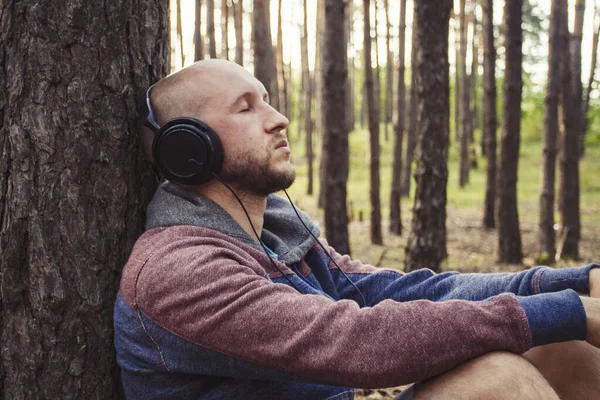Imagine you had a rough day at work and you come home feeling stressed and anxious. You want to unwind and relax, but you’re not sure how to do it in a healthy way. You could reach for a drink or snack, but you know that’s not going to make you feel better in the long run. What you need are some healthy ways to self soothe.
We all experience times of stress, sadness, and other difficult emotions. When this happens, self soothing is essential to help restore balance and well-being.
In this post, we’ll explore healthy ways to self soothe and provide helpful tips to ensure that you take care of yourself in a beneficial way. You will find out a variety of techniques and strategies that you can use to calm your mind and body, reduce stress and anxiety, and promote relaxation.
8 Healthy Ways to Self Soothe
Here are seven healthy ways to self soothe that you can incorporate into your weekly schedule.
1. Exercise with friends or loved ones
When you’re feeling stressed or anxious, it can be helpful to get your body moving. Exercise is one of the healthy ways to self soothe and release pent-up energy.
You don’t have to spend hours at the gym or run a marathon to reap the benefits of exercise, either. Even a short walk around the block or a few minutes of stretching can make a difference.
But sometimes, exercising alone can feel isolating or even daunting. That’s why connecting with friends or loved ones during physical activity can be even more beneficial.
Consider going for a hike, joining a fitness class, or even taking a yoga class with a friend. This way, you’re not only getting the physical benefits of exercise but also the social benefits of connecting with others.
Studies have shown that social support can help reduce stress and anxiety. Being around people, you trust and care about can help you feel more grounded, and sharing your experiences can give you a fresh perspective.
2. Get outside in nature
Nature has a calming effect on our minds and bodies. It’s important to take the time to step outside and take in the natural beauty around us. Whether it’s a walk in the park or a hike in the mountains, being in nature can help reduce stress and anxiety.
The sound of birds singing, the feel of the sun on our skin, and the fresh air can be very soothing. Studies have shown that spending time in nature can improve our mood, immune system, and cognitive functioning.
So, take a break from the screen and immerse yourself in the natural world. Go for a walk, have a picnic, or simply sit and admire the scenery. You will feel more refreshed and self-soothed.
3. Listen to calming music
Another major way to self soothe is to listen to calming music. Music has a powerful effect on our emotions. Listening to calming music can help us relax and reduce stress.
Create a playlist of your favorite soothing songs, or try listening to instrumental music. Studies have shown that slow, instrumental music can lower blood pressure and decrease anxiety.
Experiment with different types of music to find what works best for you. Classical, natural sounds or even white noise can be helpful for some people.
4. Engage in a hobby
Sometimes when you’re feeling overwhelmed or anxious, taking a step back and engaging in an activity that you truly enjoy can be helpful. Whether it’s knitting, painting, or playing an instrument, engaging in a hobby can be a great way to calm your mind and focus on something positive.
5. Read a book
Reading is another great way to self soothe. Reading can transport you to another world and help you forget your worries. It’s a way to escape from reality for a little bit and just relax.
6. Practice meditation or mindfulness
Meditation and mindfulness are powerful techniques to help you find inner peace and soothe your mind and body. Meditation is a practice that involves focusing your attention on a single point, such as your breath or a mantra while letting your thoughts and emotions pass by without judgment.
On the other hand, mindfulness is the practice of being fully present at the moment without distraction or judgment.
Both techniques can help you reduce stress and anxiety, increase self-awareness and improve your overall well-being. If you’re new to meditation or mindfulness, start with a few minutes each day and gradually increase your practice.
You can practice meditation or mindfulness in various ways, such as sitting or lying in a quiet place, attending a meditation class, or using a meditation app. One popular technique is guided meditation, where a teacher or app guides you through the practice and helps you focus on your breath or other sensations in your body.
7. Take a relaxing bath
One of the simplest and most effective ways to self-soothe is by taking a warm and relaxing bath. A nice soak can help ease physical tension and stress, soothe sore muscles, and provide a calming sensation to the mind and body.
Here are a few tips to enhance your bath experience:
- Create a soothing atmosphere: Light some candles, dim the lights, and put on some soft music to create a peaceful environment.
- Add some Epsom salt: Epsom salt is known for its soothing properties and can help reduce inflammation, promote relaxation, and detoxify the body. Add a cup or two to your bathwater.
- Use aromatherapy oils: Essential oils like lavender, chamomile, and ylang-ylang can help calm the mind and body. Add a few drops to your bathwater or use a diffuser to release the scents into the air.
- Stay in the moment: Focus on the sensation of the warm water, the scents, and the sounds around you. Take deep breaths and allow yourself to relax and unwind.
8. Journaling
Journaling is an effective way to process emotions and thoughts, both positive and negative. Whenever you write down your thoughts and feelings, you can gain clarity and perspective on your experiences, which can help you identify patterns, triggers, and solutions to your problems.
It can also help you release tension and reduce stress, which is why it is often recommended as a tool for anxiety and depression.
Furthermore, journaling can serve as a record of your personal growth and progress, which can be motivating and inspiring. Overall, journaling is a valuable tool for self-reflection and self-care, which is why it should be included in any list of healthy ways to self soothe.
Conclusion
Self-soothing is an important skill to have in your mental and emotional toolkit. If you learn and practice the healthy ways to self soothe, you can reduce stress and anxiety, promote relaxation and mental clarity, and improve your overall well-being.
Notwithstanding, not all these steps will work for you. Carefully experiment and choose the one that best works for you. Remember that creating a “me” time to self soothe is important.








